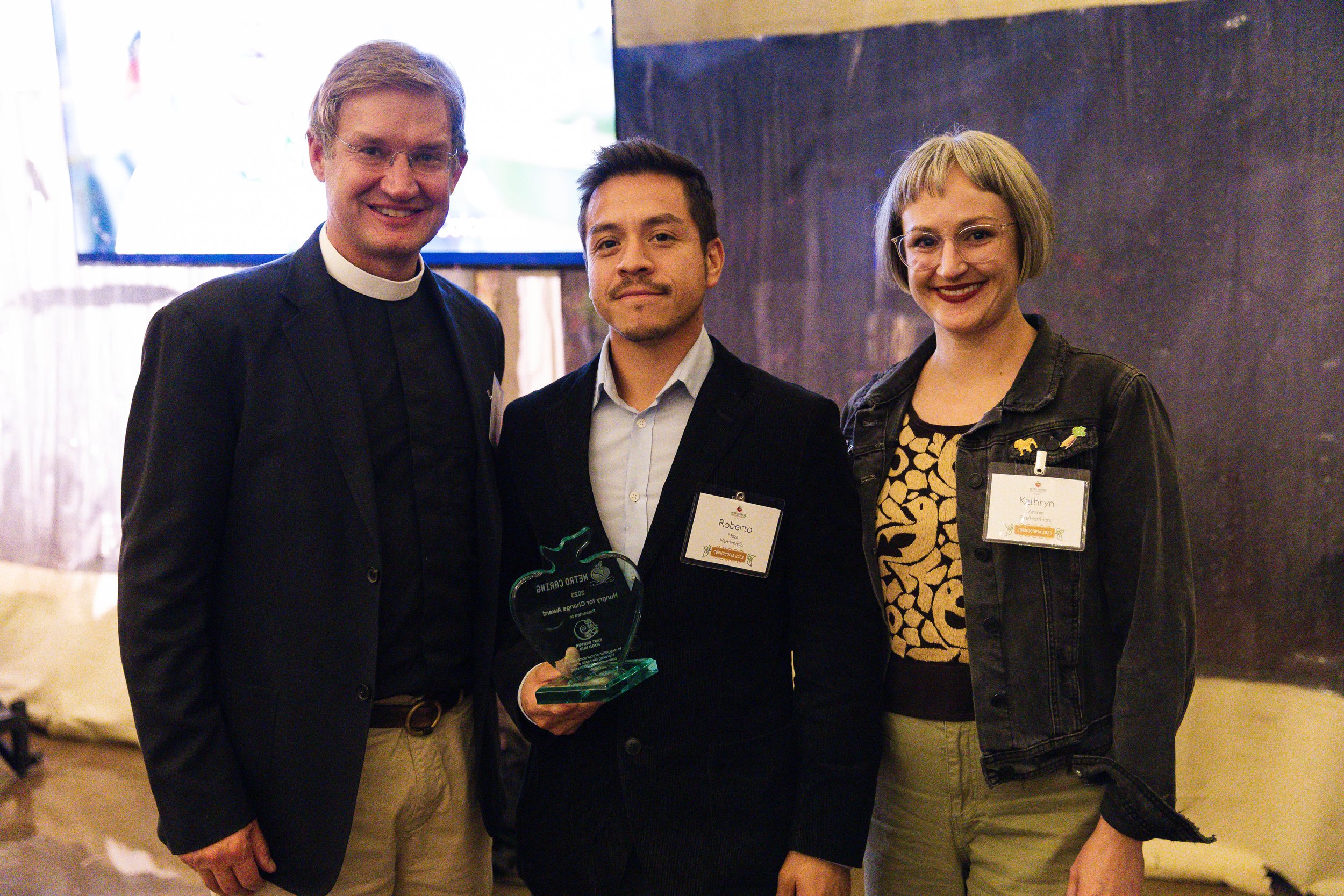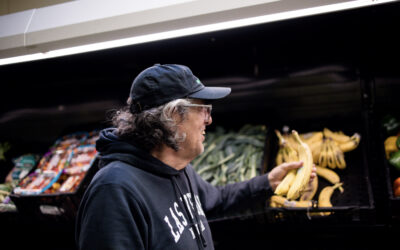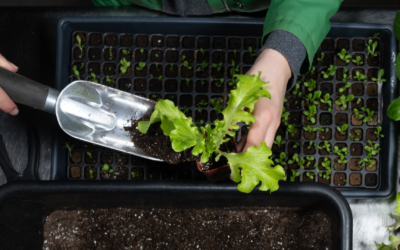By Brandon McKinley
East Denver Food Hub is a key partner of Metro Caring to ensure that local, fresh, and nutritious food makes its way to our community in a sustainable and equitable way.
Working with over 60 farms directly in Colorado, East Denver Food Hub is a social enterprise building a model for local food aggregation and distribution that supports local farmers and producers. Metro Caring regularly purchases food from East Denver Food Hub to supply our grocery-store-style Fresh Foods Market that community members can shop in for free.
“East Denver Food Hub is one of our most valued and trusted partners,” says Manager of Strategic Initiatives Emily Settlecowski. “We know that purchasing food from them comes from local producers, who are paid fair wages, and care about our environment.”
Last year, Metro Caring purchased 50,000 pounds of fresh, locally grown, nutritious food through East Denver Food Hub. This collaboration helped us dedicate 94% of our food purchasing budget to directly support local producers and producers from historically marginalized communities—such as producers who are women, LGBTQ+, first generation, Black, Indigenous, and from other communities of color.
Our Food Access team has direct connections with 11 farmers, but East Denver Food Hub allows us to reach their entire network of Colorado producers.
“East Denver Food Hub’s collaboration with front range farmers, community, local government, and food justice advocates exemplifies the type of systems-change work that is needed to tackle the root causes of hunger,” Emily says.
Metro Caring honored East Denver Food Hub as the 2023 Hungry for Change Award winner at Cornucopia, our annual fundraiser and community dinner. Reverand Richard Lawson from St. John’s Cathedral, which received last year’s award, presented the award to East Denver Food Hub’s co-founder Roberto Meza and Food Hub Director Kathryn Ardoin. The award celebrates the work of individuals and organizations that have made significant impact in improving the health of our communities and addressing hunger.
Kathryn shared that Metro Caring’s long-standing partnership has been a great benefit to East Denver Food Hub.
“Metro Caring has been a really consistent partner and one of our first since the early days,” Kathryn says. “That consistency and reliability has allowed us to be able to take another step towards growth.”

East Denver Food Hub team
“Our specific commitment to prioritizing BIPOC farmers, folks from the LGBTQ+ community, and new and beginning farmers is something we share with Metro Caring in how important and valuable it is to not just talk about equality but intentionally seek equity and support folks who don’t have the same access to resources,” Kathryn says.
East Denver Food Hub serves as a connector between farmers and consumers, allowing farmers to focus on their expertise in agriculture and land stewardship, while making it easier for consumers and organizations like Metro Caring to ensure their values are reflected in their food purchasing.
These values are important to us at Metro Caring because they influence the long-term health of our communities and address root causes of hunger. Too often people experiencing food insecurity are expected to take whatever they can get and that some people think we should just produce as much food as possible for as cheap as it can be.
“Only valuing food for how cheap it can be ignores all of the benefits that food provides us, from its health and medicinal properties, its cultural value, and how it impacts our environment,” Emily says.
Emily leads Metro Caring’s work to pilot a Community Food Utility, which focuses on shifting our food system to one that leverages value-chain coordination to ensure everyone has access to fresh, healthy food that is sustainably sourced and reflects the values a community has.
Historically, the value chain is an economic term, Kathryn explains. The value chain refers to how value is added to food throughout the process of production. For example, wheat harvested in the field could be turned into flour, which adds value. It could then be baked into bread, again adding value.
Kathryn says that we can look at layering fair wages, sustainable agriculture, and local production as adding value to the food we consume.

East Denver Food Hub team members in their warehouse.
By purchasing from partners like East Denver Food Hub, we know our spending has a greater impact in the community, Emily says.
“Partnerships with groups like East Denver Food Hub allow us to think more critically about how we spend our funding,” Emily says about Metro Caring’s food purchasing, “and how we include farmers as part of our community.”
School districts on the front range are also beginning to partner with East Denver Food Hub.
When Colorado voters passed the Healthy School Meals for All proposition on the state ballot in 2022, it created a program for all public-school children to receive free lunch starting in the 2024-25 school year. The proposition also included additional funding for schools if they procure food from local Colorado producers.
East Denver Food Hub is helping navigate the logistics for eight school districts to be able to purchase directly from Colorado farmers and ranchers.
“Schools can make a big difference with their purchasing power,” Kathryn says. “But there are a lot of challenges and restrictions around selling to schools, so we can help by alleviating a lot from farmers by reducing the barriers and risk.”
Metro Caring was proud to support Healthy School Meals for All because it shows how strong policy can change our local food system and alleviate hunger.
“We pride ourselves on working with so many wonderful nonprofits like Metro Caring who are able to tap into other funding to buy food and pay farmers for their true value,” Kathryn says. “That’s a model that makes us feel like we’re winning on a lot of different levels. Farmers are getting their fair share and community members get to eat at low or no cost, which should be a right for everybody.”




